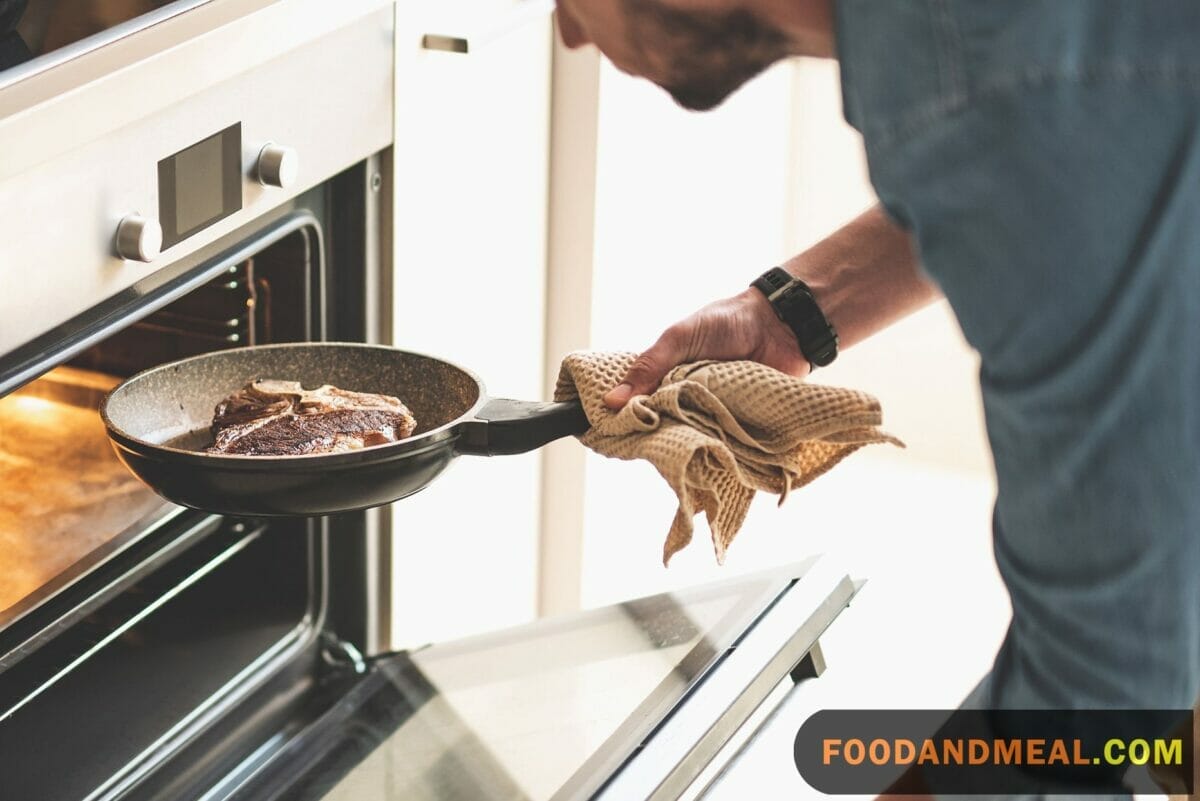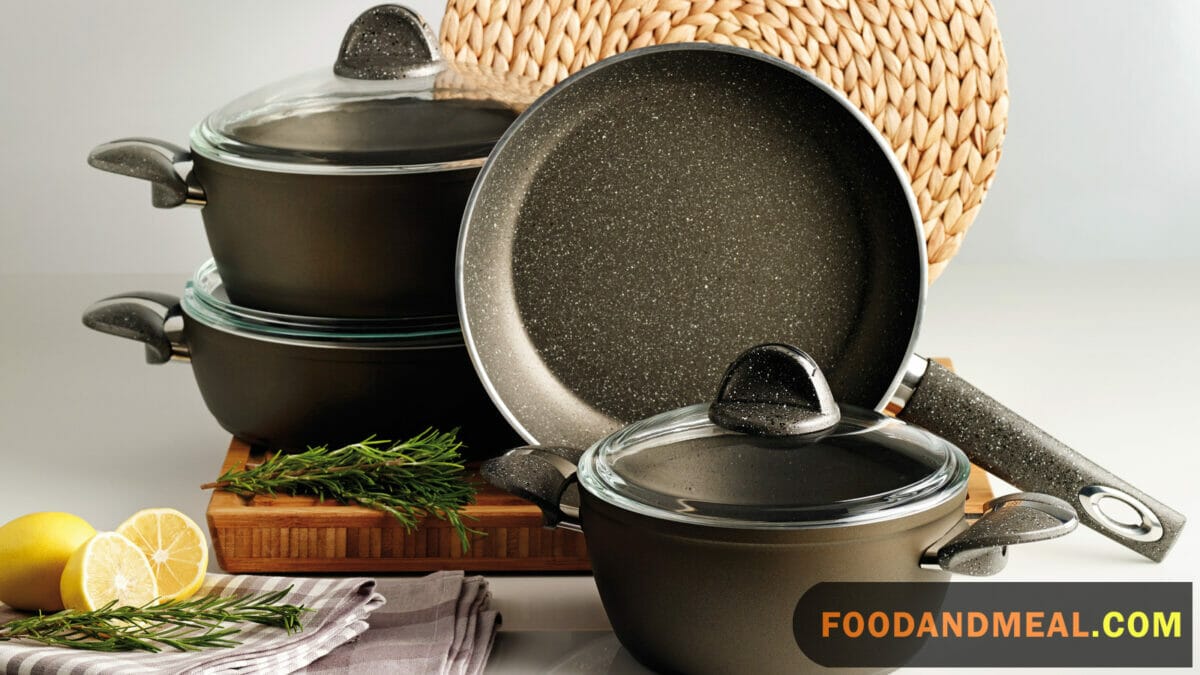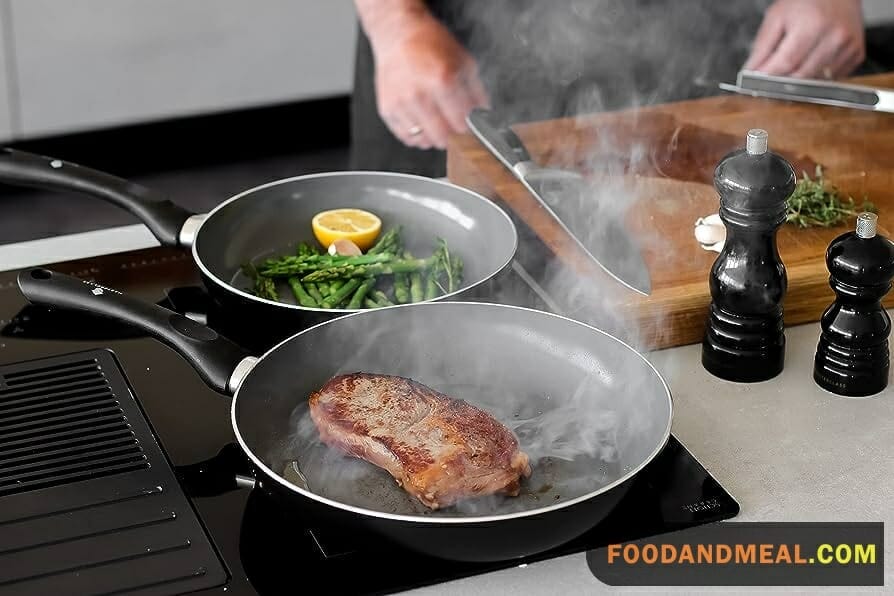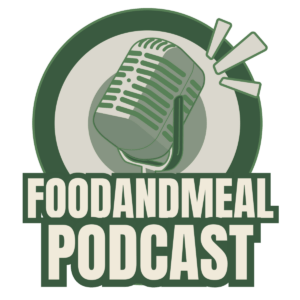Masterclass, a renowned brand in the culinary world since 1850, is known for its top-notch kitchenware that enhances the cooking experience. With a commitment to providing exceptional products, Masterclass offers a wide range of cookware designed to make cooking easier and more enjoyable. In this article, Food and Meal will delve into the composition of Masterclass cookware, its features, types, and most importantly, whether it is suitable for oven use. So, let’s jump right into the details!
What Is Masterclass Cookware Made Of?

The Masterclass cookware line boasts a combination of top-tier aluminum and robust cast carbon steel in its construction. One hallmark of all Masterclass cookware is its commitment to providing a scratch-less cooking experience, made possible by their exceptional nonstick coatings. In addition to aluminum and cast carbon steel, Masterclass incorporates a diverse range of materials into their cookware production, including carbon steel, ceramic, glass, stainless steel, among others.
These materials collectively contribute to the distinctive qualities of Masterclass cookware. Now, let’s delve into the standout features and the advantages and disadvantages of opting for Masterclass cookware.
Can Masterclass Cookware Go in The Oven?
After gaining insight into the composition of Masterclass Cookware, the important question arises: “Can Masterclass Cookware Go In The Oven?”
The answer is affirmative – yes, most Masterclass cookware items are oven-safe and can endure temperatures ranging from 395 to 400 degrees Fahrenheit. However, it’s important to note that Masterclass cookware equipped with silicon handles or glass lids should not be placed in the oven.
In the broader context, it’s always essential to consult the manufacturer’s guidelines to confirm the presence of an oven-safe symbol on the cookware and to ascertain the specific temperature limits it can endure. This ensures safe and reliable usage of Masterclass cookware in the oven.
Top 5 Features of Masterclass Cookwares
| Heat and Scratch Resistant | Masterclass cookware combines cast aluminum with scratch and heat-resistant coatings for durability and efficient cooking. |
| Heavy-Duty Structure | These cookwares are constructed with heavy-duty metals, ensuring resistance to warping, whether you’re searing, frying, baking, or sautéing. |
| Nonstick Coatings | Masterclass cookware boasts chemical-free nonstick coatings, promoting healthier cooking with less oil while preserving the delicious flavors of your dishes. |
| Aesthetic Appearance | From frying pans and griddles to saucepans and stock pots, Masterclass cookware offers unique designs that enhance your kitchen’s aesthetic. |
| Dishwasher Safe | Masterclass cookware is dishwasher-safe and compatible with various stovetops, including gas, electric, ceramic, halogen, and induction. |
Pros and Cons of Masterclass Cookwares
Griddle Pans
Masterclass premium griddle pans excel in sautéing, searing, and frying tasks due to their exceptional features. These pans boast a nonstick coating that’s fortified with a double scratch-resistant layer, reducing the need for excessive oil in your cooking endeavors.
These versatile pans are compatible with all stove types, enhancing their adaptability. Furthermore, their sturdy construction includes a robust handle for a secure grip while cooking.
Advantages of Masterclass Griddle Pans
- Versatility: They’re perfect for a wide range of cooking styles, including sautéing, searing, baking, and frying.
- Heat Compatibility: These pans can be used with various heat sources, ensuring flexibility in your kitchen.
- Enhanced Grilling: Their ribbed bases facilitate superior grilling, allowing excess fat to drain away, replicating the grill’s effect.
- Reduced Oil Usage: You can cook with minimal oil, promoting healthier meal preparation.
- Convenient Pouring: The dual pouring lips make it easy to pour and serve food without making a mess.
Drawbacks of Masterclass Griddle Pans
- Quick Cooking: Cooking on griddle pans often requires swift handling, and failure to do so can lead to accidental burns.
- Seasoning Dependency: Proper seasoning is crucial for effective use; otherwise, these pans can be challenging to cook with.
- Flavor Consistency: Cooking mixed dishes with varying flavors may necessitate cooling and cleaning the pans in between to prevent flavor contamination.
- Handle Insulation: The handles lack insulation, so caution is required to avoid burns when handling hot pans.
- Coating Sensitivity: Vigorous scrubbing may damage the nonstick coatings, reducing the pan’s effectiveness over time.
Stock Pots
Masterclass Stock Pots are expertly crafted from top-tier polished stainless steel, elevating your culinary experience. These pots are perfect for preparing a wide array of dishes, including delectable sauces, hearty stews, flavorful boils, and other robust recipes. The food-grade stainless steel construction ensures durability, allowing you to cook diverse dishes while preserving their original quality.
Advantages of Masterclass Stock Pots
- Premium Stainless Steel: These pots are meticulously crafted using the finest stainless steel materials, ensuring exceptional quality.
- Versatile Compatibility: They are suitable for use on all cooktops, including induction stovetops, offering versatility in your kitchen.
- Long-Lasting Assurance: Masterclass premium stock pots are backed by a 25-year brand guarantee, providing peace of mind for years to come.
- Effortless Cleaning: They are dishwasher safe, simplifying the cleanup process after preparing your culinary creations.
- Non-Reactive & Nonstick: These pots are non-reactive and relatively nonstick, making them ideal for various cooking needs.
Drawbacks of Masterclass Stock Pots
- Not for Deep Frying: These stock pots are not suitable for deep frying, as they are not designed for this specific cooking method.
- Handle Insulation: Similar to griddle pans, the handles lack insulation, so caution is advised when handling hot pots.

Sauce Pans
Masterclass cookware’s saucepans are thoughtfully designed, featuring transparent glass lids and a robust stainless steel construction that ensures a secure and durable framework. Moreover, these saucepans are free from PTFE and other harmful elements, prioritizing safety in your culinary endeavors.
Advantages of Masterclass Sauce Pans
- PTFE-Free and Nonstick: These saucepans are not only PTFE-free but also feature the innovative quantum 2 nonstick coating, making cooking and cleaning a breeze.
- Premium Stainless Steel: Crafted from top-quality stainless steel, these saucepans guarantee longevity and exceptional cooking performance.
- Versatile Compatibility: They are compatible with all types of hobs, including induction, enhancing their versatility in various kitchen setups.
Drawbacks of Masterclass Sauce Pans
- Not Oven-Safe: These saucepans are not suitable for oven use, as the delicate nonstick coating may deteriorate under high oven temperatures.
- Utensil Sensitivity: Avoid using metal utensils like whisks, spoons, or spatulas, as they can potentially damage the nonstick coatings, preserving the pans’ functionality.
Frying Pans
Frying pans play an essential role in daily cooking, and the Masterclass frying pan is no exception. Crafted from heavy gauge aluminum with a substantial 4mm thickness, these pans feature a nonstick coating that ensures hassle-free cooking without the fear of food sticking. The textured surface of these frying pans also promotes even heat distribution across the cooking surfaces and edges.
Advantages of Masterclass Frying Pans
- Versatile Cooking: Ideal for frying, searing, and sautéing without concerns about hot spots, ensuring consistent results.
- Oven and Grill Compatibility: These pans are safe for use in the oven and on the grill, withstanding temperatures of up to 200 degrees Celsius.
- Teflon-Free and Non-Toxic: They are free from Teflon coatings, as well as PFOA and PTFE, prioritizing safety in your cooking.
Drawbacks of Masterclass Frying Pans
- Incompatibility with Induction: Unfortunately, these frying pans are not compatible with induction heat sources.
- Hot Metal Handles: The metal handles lack insulation, so they can become hot during cooking, requiring caution when handling.
Now that we’ve examined each Masterclass cookware item and its characteristics, let’s address whether Masterclass cookware can be used in the oven. It’s important to note that Masterclass frying pans are oven-safe, but other Masterclass cookware items may have different oven compatibility.
Wok Pans
Wok pans are indispensable for the art of quick and delectable stir-frying. The Masterclass wok pan boasts an extended handle designed for commercial-grade durability. Furthermore, wok pans infuse dishes with that signature smoky stir-fry flavor, elevating the overall taste.
Advantages of Masterclass Wok Pans
- Utensil Freedom: These wok pans permit the use of metal utensils such as whisks and spoons, granting you flexibility in your cooking arsenal.
- Efficient Heat Distribution: They ensure even heat distribution, speeding up the cooking process and reducing the need for excessive oil.
- Reduced Cook Time and Oil Usage: With shorter cooking times and lower oil requirements, these wok pans promote healthier and more efficient meal preparation.
- Seasoning Capability: In contrast to Masterclass frying pans, wok pans can be seasoned, allowing them to develop a natural nonstick coating over time.
Drawbacks of Masterclass Wok Pans
- High Heat Sensitivity: Wok pans tend to cook at high temperatures, which can lead to easily burned food if not carefully monitored.
- Nonstick Coating Vulnerability: Exposure to extremely high temperatures can damage the nonstick coatings of these pans, reducing their effectiveness.
- Not for Deep Frying: Wok pans are not suitable for deep frying, as they are tailored for stir-frying and other high-heat cooking methods.

How to Care for Masterclass Premium Cookware
While the ceramic nonstick coating of Masterclass cookware is indeed non-toxic, it does require careful handling to maintain its integrity. Here are some essential tips to ensure the longevity of your ceramic-coated cookware:
- Gentle Cleaning: Avoid using abrasive washing pads or scouring materials that can scratch or damage the ceramic nonstick surface. Instead, use soft sponges or non-abrasive cleaning tools.
- Limited Dishwasher User: Prolonged soaking in a dishwasher can be harmful, so it’s best to hand wash your ceramic-coated cookware whenever possible.
- Temperature Caution: Exercise caution with extreme high temperatures during cooking and avoid prolonged exposure to ovens, as excessive heat can affect the ceramic coating. Follow the manufacturer’s recommended temperature guidelines.
- Utensil Selection: Opt for wooden or silicone utensils when cooking with ceramic-coated cookware. Metal utensils can scratch the nonstick surface and compromise its performance.
- Burnt Food Removal: If food gets burnt onto the surface, refrain from using cleaning acids or sharp utensils, as they can leave unsightly marks. Instead, try using baking soda to gently remove burnt food residue.
- Oil Application: To maintain the nonstick properties, it’s advisable to apply a thin layer of oil before and after each use. This helps condition the ceramic coating and ensures a smoother cooking experience.
By following these guidelines, you can extend the lifespan of your Masterclass cookware with ceramic nonstick coatings and enjoy safe, non-toxic cooking for years to come.
FAQs (Frequently Asked Questions)
Q: Is Masterclass cookware oven-safe?
A: Yes, many Masterclass cookware items are designed to be oven-safe. However, the specific oven-safe temperature may vary depending on the type of cookware and its materials.
Q: How can I determine if my Masterclass cookware is oven-safe?
A: Refer to the product’s user manual or check the markings on the cookware itself. The oven-safe temperature limit is usually indicated by the manufacturer.
Q: What is the typical oven-safe temperature for Masterclass cookware?
A: Oven-safe temperatures can vary by product. It’s essential to check the specific details for your Masterclass cookware item, as some may be safe at higher temperatures than others.
Q: Can I use Masterclass non-stick pans in the oven?
A: Many Masterclass non-stick pans are oven-safe, but it’s crucial to check the manufacturer’s guidelines. Exceeding recommended temperatures can affect the non-stick coating.
Q: Can Masterclass stainless steel cookware go in the oven?
A: Yes, many Masterclass stainless steel cookware items are oven-safe. Again, check the specific product details for temperature limits and guidelines.
Q: Are the handles of Masterclass cookware oven-safe too?
A: While the body of the cookware may be oven-safe, the handles might have different temperature limitations. Some cookware features handles made of materials that can withstand higher oven temperatures, while others may have heat-resistant coatings.
Q: Can I put Masterclass ceramic cookware in the oven?
A: Masterclass ceramic cookware is often oven-safe, but the maximum oven temperature may vary. Always check the product information for specific details regarding oven use.
Q: Is there a difference in oven safety between Masterclass product lines?
A: Yes, different product lines within the Masterclass range may have varying oven-safe specifications. Always refer to the documentation that accompanies your specific cookware.
Q: Can I use Masterclass bakeware in the oven?
A: Yes, Masterclass offers a range of bakeware that is designed to be used in the oven. Check the product details for specific temperature limits and guidelines.
Q: Can I use Masterclass cookware under the broiler setting in the oven?
A: Not all cookware is suitable for broiler use. Check the manufacturer’s guidelines, as the intense heat from the broiler may exceed the recommended temperatures for certain types of cookware.
Q: Is there a warranty for oven-related issues with Masterclass cookware?
A: Warranty coverage can vary, so it’s advisable to review the warranty information provided by Masterclass. If you have specific concerns about oven use, contact the manufacturer for clarification.
Before using Masterclass cookware in the oven, it’s crucial to review the manufacturer’s instructions and guidelines to ensure safe and proper usage. If you have any doubts or questions, contact Masterclass customer support for clarification.

14 December ·
Masterclass Cookware Uncovered: Your Burning Questions Answered on Kitchen Chronicles
By Food And Meal
Welcome to another exciting episode of "Kitchen Chronicles," your go-to podcast for all things related to cookware and kitchen appliances. I'm your host, and today we're delving into the world of Masterclass Cookware. Specifically, we'll be answering some burning questions about this exceptional line of kitchen equipment.

